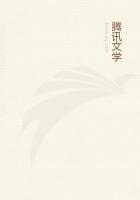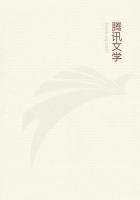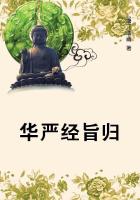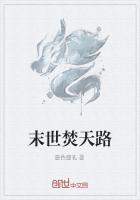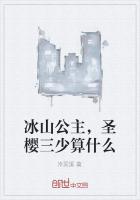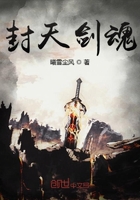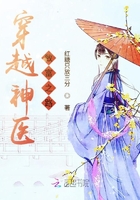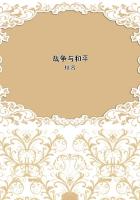Mr. Hutton, from whose "Literary Essays" I borrow Poe's opinion, says: "Poe boldly asserted that the conspicuously ideal scaffoldings of Hawthorne's stories were but the monstrous fruits of the bad transcendental atmosphere which he breathed so long."But I hope this way of putting it is not Poe's. "Ideal scaffoldings," are odd enough, but when scaffoldings turn out to be "fruits" of an "atmosphere," and monstrous fruits of a "bad transcendental atmosphere," the brain reels in the fumes of mixed metaphors. "Let him mend his pen," cried Poe, "get a bottle of visible ink, come out from the Old Manse, cut Mr. Alcott," and, in fact, write about things less impalpable, as Mr. Mallock's heroine preferred to be loved, "in a more human sort of way."Hawthorne's way was never too ruddily and robustly human. Perhaps, even in "The Scarlet Letter," we feel too distinctly that certain characters are moral conceptions, not warmed and wakened out of the allegorical into the real. The persons in an allegory may be real enough, as Bunyan has proved by examples. But that culpable clergyman, Mr. Arthur Dimmesdale, with his large, white brow, his melancholy eyes, his hand on his heart, and his general resemblance to the High Church Curate in Thackeray's "Our Street," is he real?
To me he seems very unworthy to be Hester's lover, for she is a beautiful woman of flesh and blood. Mr. Dimmesdale was not only immoral; he was unsportsmanlike. He had no more pluck than a church-mouse. His miserable passion was degraded by its brevity;how could he see this woman's disgrace for seven long years, and never pluck up heart either to share her shame or peccare forliter?
He is a lay figure, very cleverly, but somewhat conventionally made and painted. The vengeful husband of Hester, Roger Chillingworth, is a Mr. Casaubon stung into jealous anger. But his attitude, watching ever by Dimmesdale, tormenting him, and yet in his confidence, and ever unsuspected, reminds one of a conception dear to Dickens. He uses it in "David Copperfield," where Mr. Micawber (of all people!) plays this trick on Uriah Heep; he uses it in "Hunted Down"; he was about using it in "Edwin Drood"; he used it (old Martin and Pecksniff) in "Martin Chuzzlewit." The person of Roger Chillingworth and his conduct are a little too melodramatic for Hawthorne's genius.
In Dickens's manner, too, is Hawthorne's long sarcastic address to Judge Pyncheon (in "The House of the Seven Gables"), as the judge sits dead in his chair, with his watch ticking in his hand.
Occasionally a chance remark reminds one of Dickens; this for example: He is talking of large, black old books of divinity, and of their successors, tiny books, Elzevirs perhaps. "These little old volumes impressed me as if they had been intended for very large ones, but had been unfortunately blighted at an early stage of their growth." This might almost deceive the elect as a piece of the true Boz. Their widely different talents did really intersect each other where the perverse, the grotesque, and the terrible dwell.
To myself "The House of the Seven Gables" has always appeared the most beautiful and attractive of Hawthorne's novels. He actually gives us a love story, and condescends to a pretty heroine. The curse of "Maule's Blood" is a good old romantic idea, terribly handled. There is more of lightness, and of a cobwebby dusty humour in Hepzibah Pyncheon, the decayed lady shopkeeper, than Hawthorne commonly cares to display. Do you care for the "first lover," the Photographer's Young Man? It may be conventional prejudice, but I seem to see him going about on a tricycle, and Idon't think him the right person for Phoebe. Perhaps it is really the beautiful, gentle, oppressed Clifford who haunts one's memory most, a kind of tragic and thwarted Harold Skimpole. "How pleasant, how delightful," he murmured, but not as if addressing any one.
"Will it last? How balmy the atmosphere through that open window!
An open window! How beautiful that play of sunshine. Those flowers, how very fragrant! That young girl's face, how cheerful, how blooming. A flower with the dew on it, and sunbeams in the dewdrops . . . " This comparison with Skimpole may sound like an unkind criticism of Clifford's character and place in the story--it is only a chance note of a chance resemblance.
Indeed, it may be that Hawthorne himself was aware of the resemblance. "An individual of Clifford's character," he remarks, "can always be pricked more acutely through his sense of the beautiful and harmonious than through his heart." And he suggests that, if Clifford had not been so long in prison, his aesthetic zeal "might have eaten out or filed away his affections." This was what befell Harold Skimpole--himself "in prisons often"--at Coavinses! The Judge Pyncheon of the tale is also a masterly study of swaggering black-hearted respectability, and then, in addition to all the poetry of his style, and the charm of his haunted air, Hawthorne favours us with a brave conclusion of the good sort, the old sort. They come into money, they marry, they are happy ever after. This is doing things handsomely, though some of our modern novelists think it coarse and degrading. Hawthorne did not think so, and they are not exactly better artists than Hawthorne.
Yet he, too, had his economies, which we resent. I do not mean his not telling us what it was that Roger Chillingworth saw on Arthur Dimmesdale's bare breast. To leave that vague is quite legitimate.
But what had Miriam and the spectre of the Catacombs done? Who was the spectre? What did he want? To have told all this would have been better than to fill the novel with padding about Rome, sculpture, and the Ethics of Art. As the silly saying runs: "the people has a right to know" about Miriam and her ghostly acquaintance. But the "Marble Faun" is not of Hawthorne's best period, beautiful as are a hundred passages in the tale.
Beautiful passages are as common in his prose as gold in the richest quartz. How excellent are his words on the first faint but certain breath of Autumn in the air, felt, perhaps, early in July.
"And then came Autumn, with his immense burthen of apples, dropping them continually from his overladen shoulders as he trudged along."Keats might have written so of Autumn in the orchards--if Keats had been writing prose.
There are geniuses more sunny, large, and glad than Hawthorne's, none more original, more surefooted, in his own realm of moonlight and twilight.

